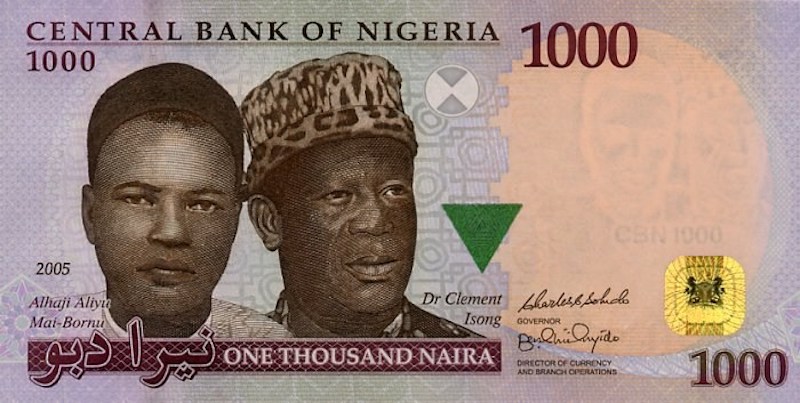the serious, hot argument as to
whether a strong naira is better for Nigeria or
whether a devalued Naira is better for Nigeria
which raged through the 1970s and the 1980s
prior to the 1989 Naira devaluation
among educated Nigerians of various fields of learning
including those who claimed to have studied and understood deeply courses related to the use and management of money e.g economics and finance, etc,
and those with lesser exposure to the intracacies and esoterics of
finance, banking, money, economics, etc,
is no longer an intellectual exercise.
that argument used to be :
● re – a strong currency or a weak currency – which one is better for a national economy ?
and therefore by extension also :
● which one is better for the Nigeria economy ?
● and which one should Nigeria practice ?
it stopped being an academic intellectual discussion in 1989
when Nigeria after a nation-wide debate involving the people
decided not to accept the IMF loan
dangled before it by the IMF( International Monetary Fund )
and to instead
implement Nigeria’s own home grown
Structural Adjustment Programme ( SAP )
which turned out to have a corner-stone policy of devaluation of the Naira as seen and implemented via the then
First Tier Foreign Exchange Market,
Second Tier Foreign Exchange Market ,
etc,
and which saw the Naira going down in value and strength
from N1 = $1 to N4 = $1
to it’s present sorry state ( ◀️ how are the mighty fallen ▶️ )
of N300 or more = $1.
the impacts of the devaluation of the Naira
on Nigeria residents and Nigerians
have been very visible in the public space locally and internationally
and are therefore on public record
.. locally and internationally ..
and have also in a number in instances been documented in
different fora/forums including newspapers and intellectual articles.
by and large,
the impacts of the devaluation of the Naira
on Nigeria residents and Nigerians
have very clearly been
█ horrible
█ horror-ful
█ horrific
█ horrendous
and have included, to mention, a few :
● INFLATION
● HYPER-INFLATION
● UPWARDLY SPIRALLING INFLATION going into 3 digit inflation and more
● STAGNATION
● STAG-FLATION
● EROSION OF THE PURCHASING POWER OF THE NAIRA
● EROSION OF THE DISPOSABLE INCOME OF THE PEOPLE
● EXCESS INVENTORY IN COMPANIES, INDUSTRIES & MANUFACTURING CONCERNS
● LOSS OF EMPLOYMENT OF STAFF INCLUDING WORKERS AND MANAGERS
● RETRENCHMENT / DOWN-SIZING OF STAFF IN COMPANIES
● BURGEONING / SWELLING UP OF THE NUMBERS OF THE UN-EMPLOYED AT ALL LEVELS OF THE NATIONAL ECONOMY
● BRAIN DRAIN
● SKILLS DRAIN
● MANPOWER DRAIN
● LOSS OF INVESTOR CONFIDENCE IN THE NIGERIA ECONOMY
● RELOCATION OF COMPANIES FROM NIGERIA TO OTHER COUNTRIES
● ETC, ● ETC, ● ETC
so really, having seen i.e witnessed from 1989 till date 2020
i.e for a period of ( 2020 – 1989 = ) 31 years
… and still counting …
the very negative impact that the devaluation of the Nigeria Naira
has had on the life of Nigerians and on the Nigeria economy
it’s really far, far, far more than about time that
those Nigeria persons and Nigeria institutions that are positioned to be able to re-envalue the Naira should do so
without any further ado



tadalafil brand name – purchase generic cialis cialis pharmacy uk
how soon after surgery can i take viagra The rising levels of estradiol cause the pituitary to slow down the production of FSH